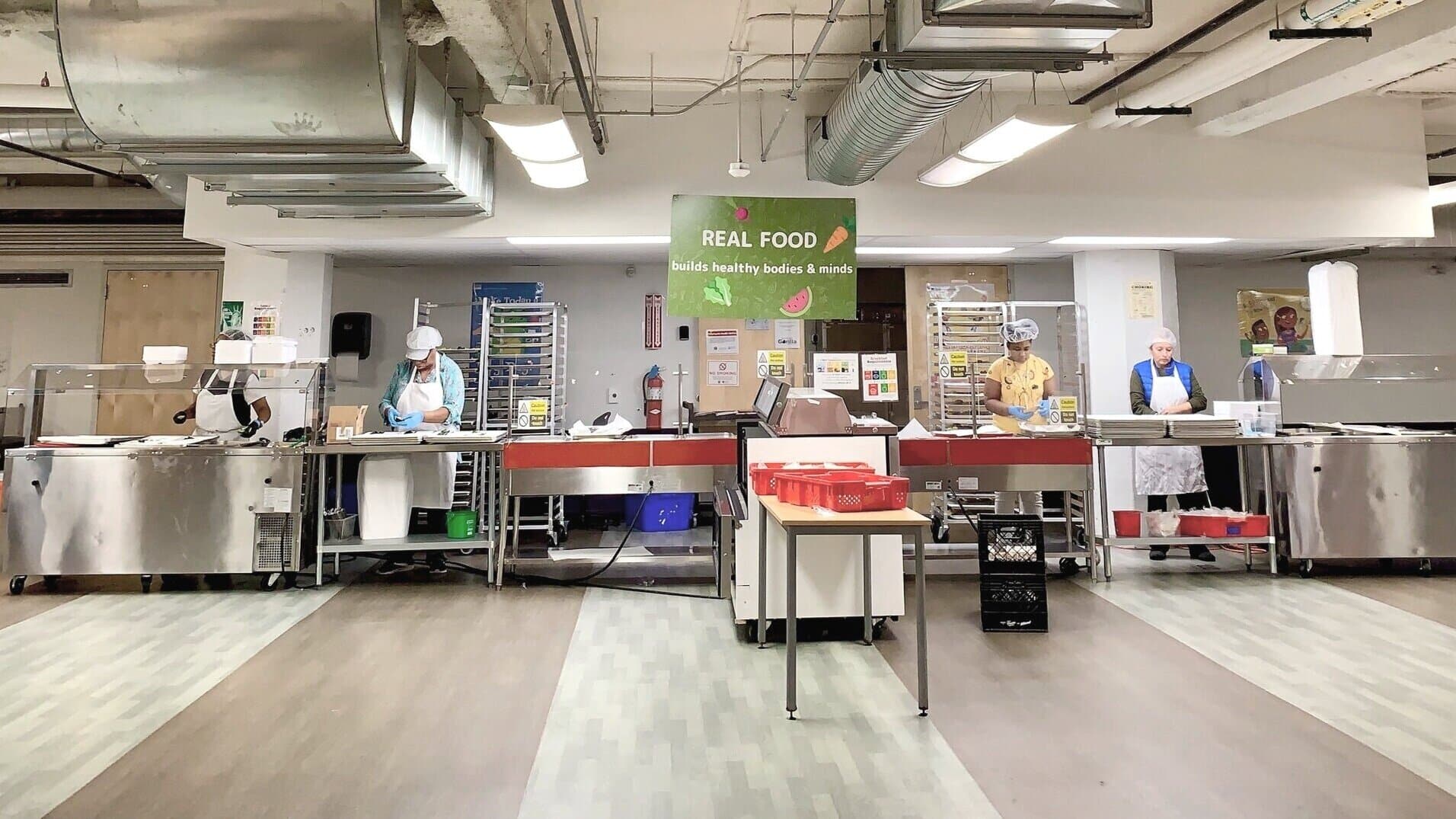Published March 4, 2020
Eating school breakfast does more than just add a healthy, nutritional meal to a student’s day. School breakfast consumption is associated with improved school attendance, educational performance, and overall diet quality. Furthermore, school breakfast participation has the power to reduce food waste. Best yet, most school breakfast programs are free for students and help to ensure that students meet the nutritional requirements for growth and development.
While mornings are busy, it is also one of the most important times for students to eat. Just as the sun rises, student energy needs are the highest. When we help students meet this demand, they are better set up for academic success (Bartfeld et al., 2019). Meanwhile, morning tasks tend to overwhelm many of us and we forget to eat. Eating breakfast can be inconvenient and it may be difficult to determine what foods are best to eat in the morning. Therefore, taking the task of meeting student breakfast needs “off our plate” may come as a huge relief.
Fortunately, research has found that a better alternative to forcing a meal at home is to allow students to participate in the School Breakfast Program, particularly when breakfast is served in the classroom (Polonsky et al., 2019). Breakfast in the classroom makes the school breakfast program more accessible, and is free to most students. When participating in the School Breakfast Program, students have better attendance rates and tend to score higher in exams (Anzman-Frasca et al., 2014). School breakfast is a novel way to improve the overall health of students while simultaneously boosting the in-school experience.
While doing better in school sounds appealing, a key concern for teachers, parents, and students is the quality of food that will be served as part of the School Breakfast Program. Yet, research has found that students who participate in the school breakfast program have better overall diet quality (Ritchie et al., 2015). Specific components of student intake that were improved include higher fruit consumption and lower intake of empty calories, such as from sugar-sweetened beverages (Ritchie et al., 2015). Viewing school breakfast as an opportunity to improve the overall diet quality of students can mitigate other concerns for serving school breakfast in the classroom. Although keeping breakfast in the classroom results in a need for cleanup, it is minimally disruptive to class time and is a fair exchange for better focus and higher levels of concentration (Adolphus et al., 2016).
Breakfast in the classroom additionally reduces food waste compared to breakfast served in a cafeteria. In one study, across all schools tested, food waste decreased from 43.0% to 38.5% with breakfast in the classroom, with significant decreases for entree items, juice, and healthy snacks (Farris et al., 2019). School breakfast, when served in the classroom, offers a unique opportunity to improve food quality while minimizing food waste, which teaches our students how to create a respectful relationship with eating as an individual part of a greater food system.
Gourmet Gorilla mindfully creates healthy meals that are prepared to be eaten at school and in the classroom. School breakfast is a convenient solution to meeting a student’s nutritional needs. Participation in school breakfast improves cognitive and academic performance while promoting school attendance. With better food quality compared to other breakfast options, and less food waste, school breakfast is a win for everyone involved!
Written by: Katherine Chung & Alex Stoller
CitationsBartfeld JS, Berger L, Men F, Chen Y. Access to the School Breakfast Program Is Associated with Higher Attendance and Test Scores among Elementary School Students. J Nutr. 2019 Feb 1;149(2):336-343. doi: 10.1093/jn/nxy267. PubMed PMID: 30715390.Polonsky HM, Bauer KW, Fisher JO, Davey A, Sherman S, Abel ML, Hanlon A, Ruth KJ, Dale LC, Foster GD. Effect of a Breakfast in the Classroom Initiative on Obesity in Urban School-aged Children: A Cluster Randomized Clinical Trial. JAMA Pediatr. 2019 Apr 1;173(4):326-333. doi: 10.1001/jamapediatrics.2018.5531. PubMed PMID: 30801612; PubMed Central PMCID: PMC6450266.Anzman-Frasca S, Djang HC, Halmo MM, Dolan PR, Economos CD. Estimating impacts of a breakfast in the classroom program on school outcomes. JAMA Pediatr. 2015 Jan;169(1):71-7. doi: 10.1001/jamapediatrics.2014.2042. PubMed PMID: 25420110.Ritchie LD, Rosen NJ, Fenton K, Au LE, Goldstein LH, Shimada T. School Breakfast Policy Is Associated with Dietary Intake of Fourth- and Fifth-Grade Students. J Acad Nutr Diet. 2016 Mar;116(3):449-457. doi: 10.1016/j.jand.2015.08.020. Epub 2015 Oct 1. PubMed PMID: 26433452.Adolphus K, Lawton CL, Champ CL, Dye L. The Effects of Breakfast and Breakfast Composition on Cognition in Children and Adolescents: A Systematic Review. Adv Nutr. 2016 May;7(3):590S-612S. doi: 10.3945/an.115.010256. Print 2016 May. Review. PubMed PMID: 27184287; PubMed Central PMCID: PMC4863264.Farris AR, Roy M, Serrano EL, Misyak S. Impact of Breakfast in the Classroom on Participation and Food Waste. J Nutr Educ Behav. 2019 Jul - Aug;51(7):893-898. doi: 10.1016/j.jneb.2019.04.015. Epub 2019 May 15. PubMed PMID: 31101481. 



